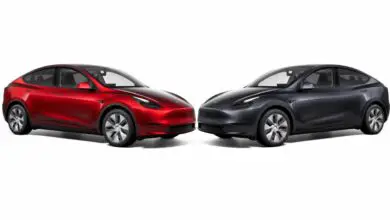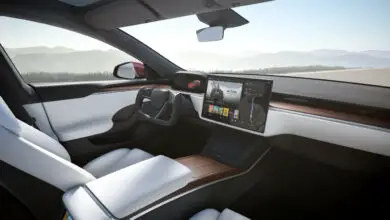Tesla’s Aggressive Price Cuts Spark Surge in EV Sales and Market Domination
Recent Data Reveals Tesla's Strategy as the Catalyst for a Remarkable EV Market Shift

In a bold move, Tesla has initiated price reductions across its entire lineup this year, effectively launching a “price war” against rival automakers. The impact of this strategy is evident in recent registration data from the United States, indicating a significant surge in overall electric vehicle (EV) sales, further solidifying Tesla’s position as the dominant market share leader.
According to the latest registration data from Experian, the share of EVs in the automotive market has risen to an impressive 7.2 percent in the period from January to July this year. Overall EV registrations have surged to 655,986, marking a remarkable 67 percent year-over-year increase (via Automotive News). During this same timeframe, Tesla witnessed a remarkable 50-percent increase in vehicle registrations, totaling 390,377 units. As a result, Tesla commands an impressive 59.5-percent share of the EV market.
Following closely behind Tesla in registrations are offerings from Chevrolet (39,647), Ford (33,955), Hyundai (28,198), and BMW (23,116), making up the rest of the top five registered EV brands in the United States. Notable EV models from Chevy and Ford include the Chevy Bolt EV and Bolt EUV, the brand-new Silverado, the Ford Mustang Mach-E, and the F-150 Lightning.
The data reveals that Model Y registrations have exceeded expectations, reaching an impressive 236,041 units in the first seven months of the year, more than doubling last year’s figures. Tesla’s Model 3 also performed admirably, with 131,381 registrations in the period ending July, ahead of the launch of the highly anticipated Highland Model 3. However, the Model S experienced a decline of 51 percent in registration figures during the same period, settling at just 8,493 units, while the Model X saw a 14-percent decrease, with 14,462 registered units.
Tesla’s decision to reduce vehicle prices in January triggered a ripple effect, compelling some other automakers to follow suit. J.D. Power estimates that the overall EV market share surged to 8.5 percent in July, citing Tesla’s price reductions as a key driver in making EVs more accessible to a wider audience. The organization also evaluates EVs against traditional gas cars, rating them on a scale of 100 points. Elizabeth Krear, VP of EV practice at J.D. Power, highlighted Tesla’s price cuts as a significant contributor to the increased market share in a recent analysis of the index.
Krear noted, “Affordability remains the highest-scoring factor at 97, driven by aggressive pricing from Tesla. Although the affordability factor is approaching parity, it is skewed by the premium market, driven largely by Tesla’s 63 percent EV market share.”
It’s important to recognize that Tesla does not disclose global sales by region or country, making the Experian data more of an estimate rather than a precise sales figure. Additionally, many automakers do not separate EV sales from their conventional gasoline-powered cars, and some do not share their monthly sales data.



